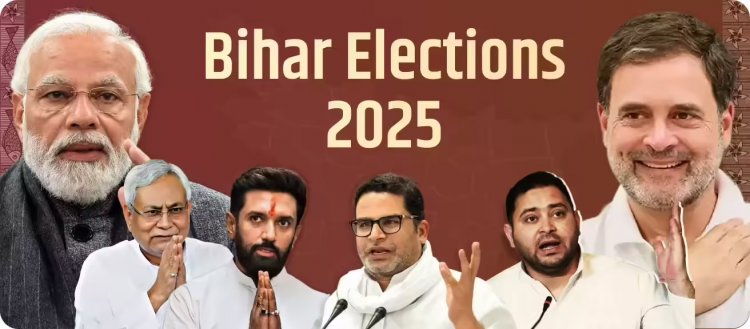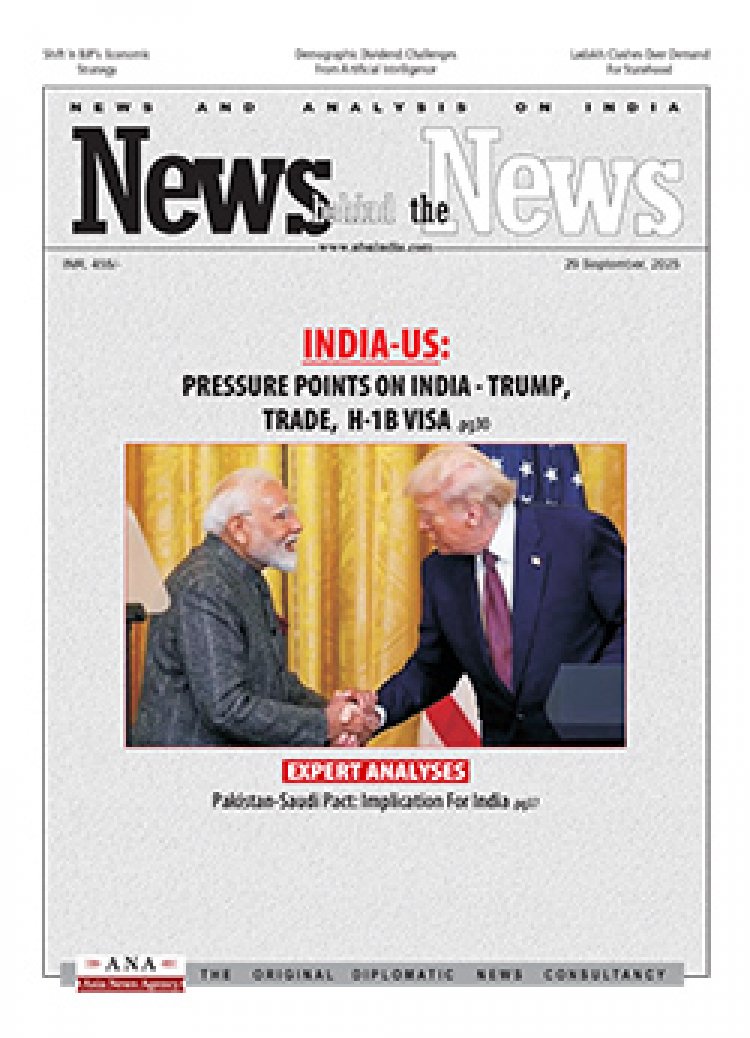Bihar Assembly Elections: Corruption as an Issue
Asia News Agency

The Bihar Assembly elections are perceived to be a two alliance race - ruling Janata Dal (United) and BJP vs Congress led grand alliance. There is a third party that may play the spoilsport. That is the ‘Jan Suraaj’ party led by Prashant Kishor, a political strategist.
According to him, corruption allegations against the leaders of the JD(U) and BJP in Bihar have triggered dissension within the ruling alliance, with many leaders bringing up the charges against their own.
Kishor, who launched his Jan Suraaj party on 2 October 2024, writes Neelam Pandey (Senior Associate Editor ET, and covers politics) is “positioning himself as an alternative leader capable of ushering in ‘clean politics’ in the state.”
By spurring turmoil within parties, "his allegations have become not only a headache for the NDA alliance but also a weapon for the opposition parties, giving them a fresh cause to attack the BJP-JD(U) combination.”
Prominent among the BJP leaders is former Union minister and senior BJP leader Raj Kumar Singh who said that the issues raised by Kishor put several question marks around the credibility of the NDA government in Bihar.
Congress: pilot project to monitor electoral rolls
Meanwhile, after raising concerns over what it calls ‘Vote Chori’, or vote theft, the Congress party has launched a ‘Vote Rakshak’ (defenders of the Vote) campaign aimed at equipping its cadre to detect and report irregularities in voter lists.
As part of the initiative to counter alleged manipulation of electoral rolls, the Congress has shortlisted five Lok Sabha constituencies where it lost by narrow margins: Jaipur Rural and Alwar (Rajasthan), Kanker (Chhattisgarh), Morena (Madhya Pradesh) and Basgaon (Uttar Pradesh).
In these constituencies, one ‘Vote Rakshak’ will be deployed for every 20 polling booths, translating to approximately 15-20 volunteers per assembly segment, and nearly 100 in each Lok Sabha seat.
The decision to focus on these five Lok Sabha seats was intended to send out a message that the Congress might have won them had booth ‘rakshaks’ been in place earlier, while also sensitising the local cadre.
The initiative is being treated as a pilot project as the victory margin in these constituencies was under 10,000 votes. After this, the party plans to expand the campaign to five more seats where the margin was below 20,000.
Trainings for ‘Vote Rakshaks’: According to a Congress functionary, ‘Vote Rakshaks’ are volunteers tasked with preventing vote theft. In one of the training presentations, their role is outlined as party workers who are not only part of the organisation but are also trained to scrutinise voter lists, make effective use of electoral forms and raise objections over irregularities in the rolls.
Prashant Srivastava (Special Correspondent-cum-Assistant Editor, Times of India) has learnt that during training visits, workers are taken through four presentations—what ‘vote chori’ is, how to stop ‘vote chori’, the use of official documents, and the ‘Vote Rakshak’ campaign.
Speaking on condition of anonymity, a senior Congress MP said, ‘It is a good initiative on paper, but scaling it across all 545 Lok Sabha seats will not be easy. In Congress, candidates often rely on their own core teams for booth management, and whether these teams will heed the ‘Vote Rakshaks’ remains to be seen.’
















